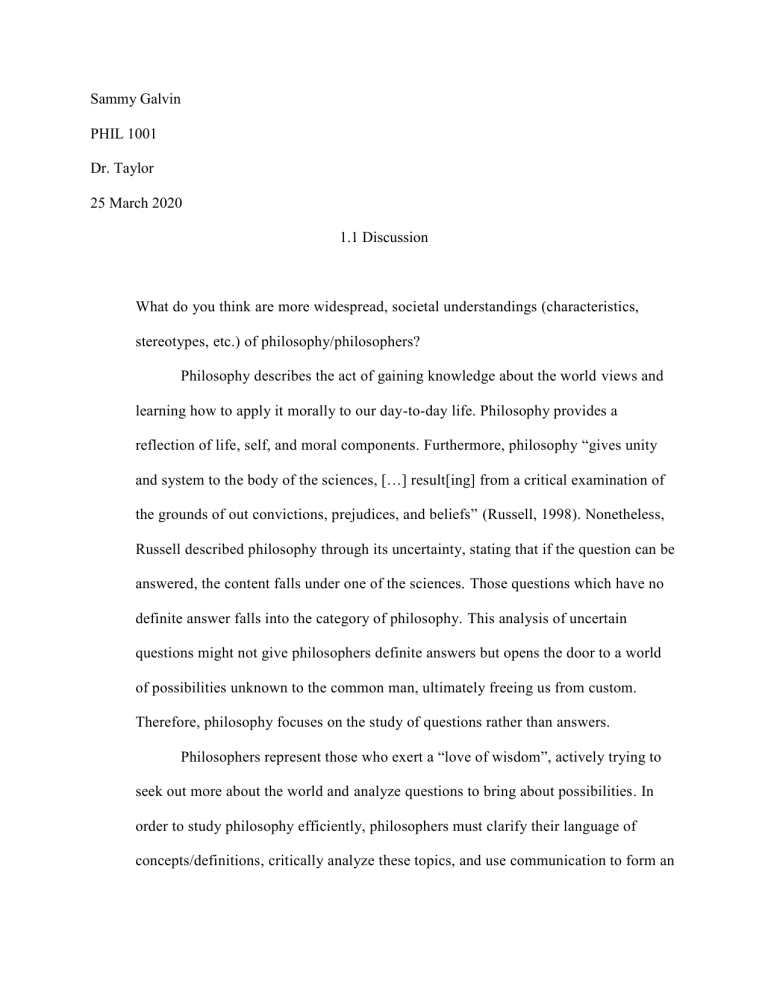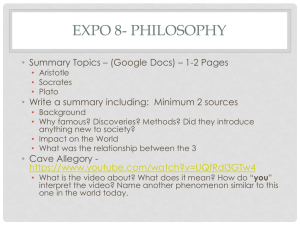
Sammy Galvin PHIL 1001 Dr. Taylor 25 March 2020 1.1 Discussion What do you think are more widespread, societal understandings (characteristics, stereotypes, etc.) of philosophy/philosophers? Philosophy describes the act of gaining knowledge about the world views and learning how to apply it morally to our day-to-day life. Philosophy provides a reflection of life, self, and moral components. Furthermore, philosophy “gives unity and system to the body of the sciences, […] result[ing] from a critical examination of the grounds of out convictions, prejudices, and beliefs” (Russell, 1998). Nonetheless, Russell described philosophy through its uncertainty, stating that if the question can be answered, the content falls under one of the sciences. Those questions which have no definite answer falls into the category of philosophy. This analysis of uncertain questions might not give philosophers definite answers but opens the door to a world of possibilities unknown to the common man, ultimately freeing us from custom. Therefore, philosophy focuses on the study of questions rather than answers. Philosophers represent those who exert a “love of wisdom”, actively trying to seek out more about the world and analyze questions to bring about possibilities. In order to study philosophy efficiently, philosophers must clarify their language of concepts/definitions, critically analyze these topics, and use communication to form an argument and discuss issues. An important component of the philosopher is the ability to listen, for without it you cannot justify your beliefs nor see the other side of the story. Using these methods, philosophers develop a world view and a comprehension system by which our knowledge can be categorized and examined. I have very little knowledge on philosophy, therefore, if I am being honest, my immediate thought goes towards the words: “thinker” and “reflection”: someone who finds the simplest concepts and forms questions to make them not so simple. I believe philosophers analyze life, self, and questions to a deeper level. Of course, my image of a philosopher derives from Socrates, a man with a white beard, or someone who just ponders life. As for the rest of the public, philosophers seem removed from the rest of humanity. Obviously, my knowledge of philosophy right now proves to be very superficial, but my current stereotypes, understandings, and misconceptions about the study might correlate to the general public’s idea as well. Reference List Russell, B. (2001). The problems of philosophy (2nd ed.). Oxford University Press.




